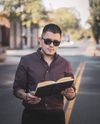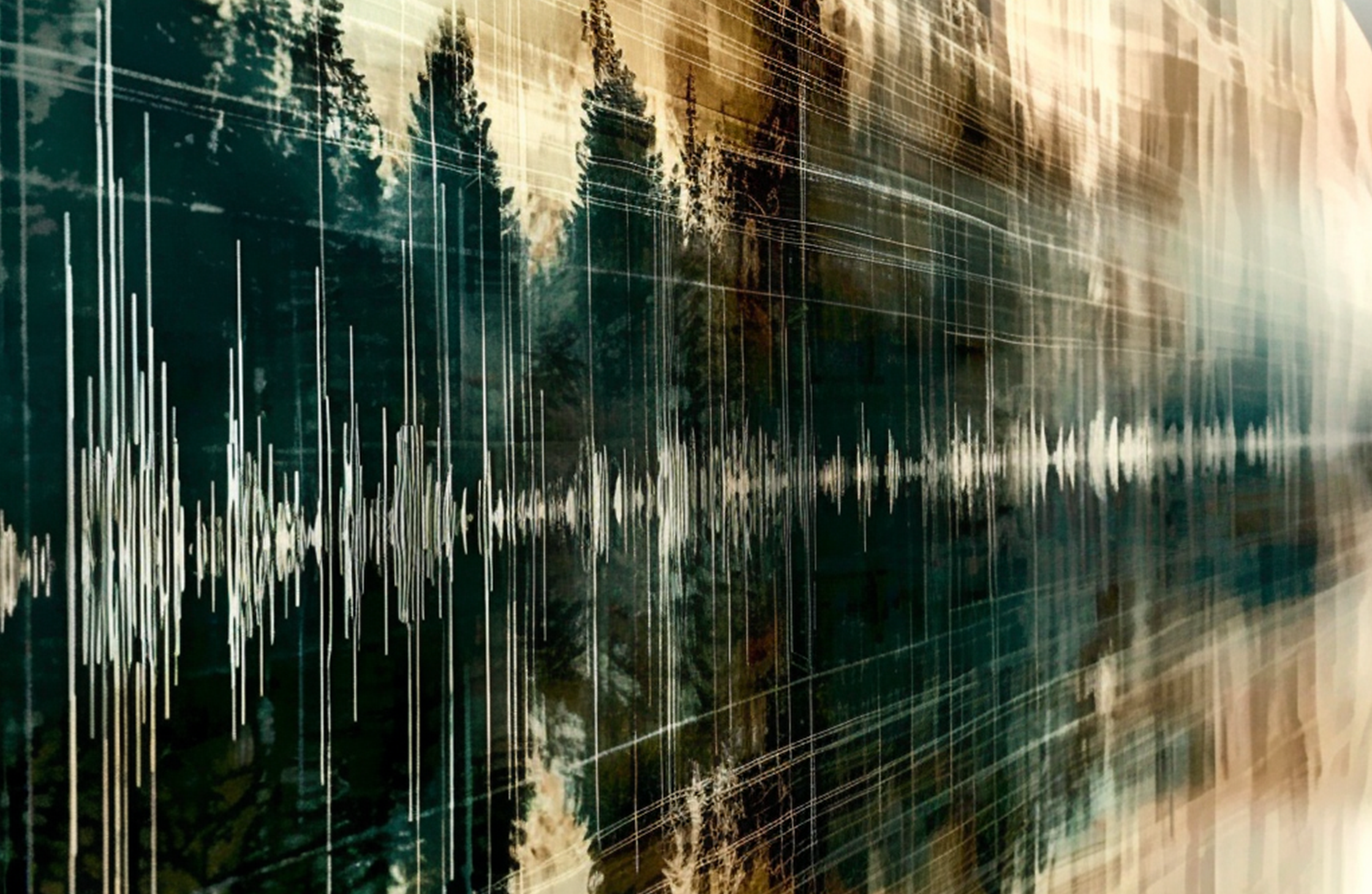This article is bilingual! Scroll down for the English translation!
Probablemente en esta última semana se me ha preguntado más de una vez cómo llegué yo aquí, cómo Odiseo llegó a manipular tantas moléculas, átomos e ideas, transformando la materia en un sueño posible para sí mismo. Cuando escuchas tantas historias y te das la tarea de prestar atención a lo que la gente cuenta, encontrando un sin número de similitudes casi mágicas, donde tanto individuo adorna su propia vida con guirnaldas de orgullo y lágrimas gloriosas, no queda más que enmudecer.
(Auscultare) Escuchar.
Dejar de hilar palabras con las cuerdas vocales y pausar el impulso humano de comunicar, colocarte de lado, la oreja en el muro o en este caso, en el pecho de tu historiador. Hay para mí muchos tipos de hablantes: hablantes constantes a los cuales las ideas les fluyen sólidamente, hablantes de consistencia dura, congruentes sin acercarse mucho a lo mecánico, hablantes toscos, gruesos, de palabras esdrújulas pero con gravedad opuesta, hablantes dotados con vocabulario extenso lleno de sentimientos, ‘antisonantes’, mal educados, con déficit, hablantes limitados con temor, con acento, sin verdad, sobrantes de imaginación. El hablante toma, transforma su entorno humanado en una conspiración utópica con verdad acentuada terminada en cuestión, no calcula o mide con precisión, el hablante se expresa con perspectiva propia, con influencia de algún otro hablante o comentarista, osmosis parlante, este es el creador del mundo, de algún mundo, de su mundo.
Si pudiera decir de manera clara cómo me sucedió todo esto, me tocaría hablar sin respirar un segundo, como guardando oxígeno en el fondo del mar, o en realidad no sabría describir que estoy aquí por conducto de la palabra que se escucha en el silencio, en la soledad, la que se distingue en la multitud, la que te llama centímetros antes de cruzar la luz color amarillo, la palabra de voluntad, la que se alza, la que enseña.
La teoría del sonido, del sentido, de la forma, de la causa, del objetivo, en el caos de lo que se oculta, lo que se esconde, porque ocultar lleva acción de futura, esperar acechando una posibilidad de ganar, más sin embargo, esconder es más vulnerable, esconder es más concreto, puede darse en ambos polos, esconder el miedo, esconderse por miedo, esconder el dinero, ocultar el gasto, lo que sale a la luz, lo que se debe señalar.
Auscultare también viene de esculcar, de prestar no solo atención, es entregarse no por completo, escuchar es detenerse y diseccionar, no conformarse con un solo plato lleno de uvas y fe, es tomar el sonido deshilachado para tejer construyendo solidez en la imagen futura, esa imagen futura que jamás será testigo de nuestra mirada, porque construir para el prójimo es esperar nada, construir para el prójimo reflejado es quererlo todo, así como todos los que reflejan su mirada en los rostros viejos de algo que jamás, que jamás pasó, una vida, una vida honesta de sí misma.
English Translation:
Probably in this last week, I have been asked more than once how I got here, and how Odysseus came to manipulate so many molecules, atoms, and ideas, transforming matter into a possible dream for himself. When you hear so many stories and make it a point to pay attention to what people say, finding countless almost magical similarities, where each individual adorns their own life with garlands of pride and glorious tears, there is nothing left but to fall silent.
(Auscultare) To listen.
Stop weaving words with vocal cords and pause the human impulse to communicate. Place yourself aside, your ear to the wall — or in this case, to the chest of your storyteller. For me, there are many types of speakers: constant speakers to whom ideas flow solidly; speakers of hard consistency, congruent without getting too mechanical; rough speakers, thick, with words stressed but with opposite gravity; speakers endowed with an extensive vocabulary full of feelings; ‘disharmonious’, ill-mannered, deficient speakers; speakers limited by fear, with an accent, without truth, with an excess of imagination. The speaker takes, transforms their humanized environment into a utopian conspiracy with emphasized truth ending in question, does not calculate or measure with precision. The speaker expresses themselves with their own perspective, influenced by another speaker or commentator. Speaking osmosis — this is the creator of the world, of some world, of their world.
If I could say clearly how all this happened to me, I would have to speak without taking a second breath, as if saving oxygen at the bottom of the sea, or I really wouldn’t know how to describe that I am here through the word that is heard in silence, in solitude, the one that stands out in the crowd, the one that calls you bare moments before crossing the yellow light, the word of will, the one that rises, the one that teaches.
The theory of sound, of meaning, of form, of cause, of purpose, is in the chaos of what is hidden, what is concealed, because hiding involves future action, waiting for a possibility to win. However, hiding is more vulnerable. Hiding is more concrete. It can occur at both poles: hiding fear, hiding because of fear; hiding money, concealing expenses; what comes to light, what needs to be pointed out.
Auscultare also comes from searching, from paying attention but not surrendering completely. To listen is to stop and dissect, not settling for a single plate full of grapes and faith. It is taking the frayed sound to weave solidity into the future image — that future image that will never witness our gaze because building for others is expecting nothing. Building for the reflected other is wanting everything, just like all those who reflect their gazes on the old faces of something that never happened: a life, an honest life of itself.
Ulises Navarro es el director de operaciones de Alcon Media, LLC, donde combina su pasión por las operaciones de los medios con su dedicación a la justicia social, el folklore y el periodismo independiente. También es el presidente de klaindastino kors. Originario de Guadalajara, México, es un filósofo y escritor autodidacta que emigró a los Estados Unidos a la edad de 21 años, trabajando inicialmente como agricultor en los campos de Washington y Oregón. Fue allí donde nació su deseo de lucha social por los derechos de los migrantes. Ulises recibió el premio BFT del Salón de la Fama del Transporte Público por su informe “Sobre la inclusión en el transporte público”. Ahora trabaja en muchos proyectos informativos y educativos, incluido El Centro de la Dignidad.
Ulises Navarro is the Chief Operating Officer of Alcon Media, LLC, where he combines his passion for media operations with his dedication to social justice, folklore, and independent journalism. He is also the president of klaindastino kors. Originally from Guadalajara, Mexico, he is a self-taught philosopher and writer who migrated to the United States at the age of 21, working initially as a farmer in the fields of Washington and Oregon. It was there where his desire for social struggle for the rights of migrants was born. Ulysses received the BFT Public Transportation Hall of Fame Award for his reporting “On Inclusion in Public Transportation”. He now works on many informational and educational projects, including El Centro de la Dignidad.
Este artículo es presentado por El Vuelo Informativo, una asociación entre Alcon Media, LLC y Tumbleweird, SPC.
This article is brought to you by El Vuelo Informativo, a partnership between Alcon Media, LLC and Tumbleweird, SPC.


